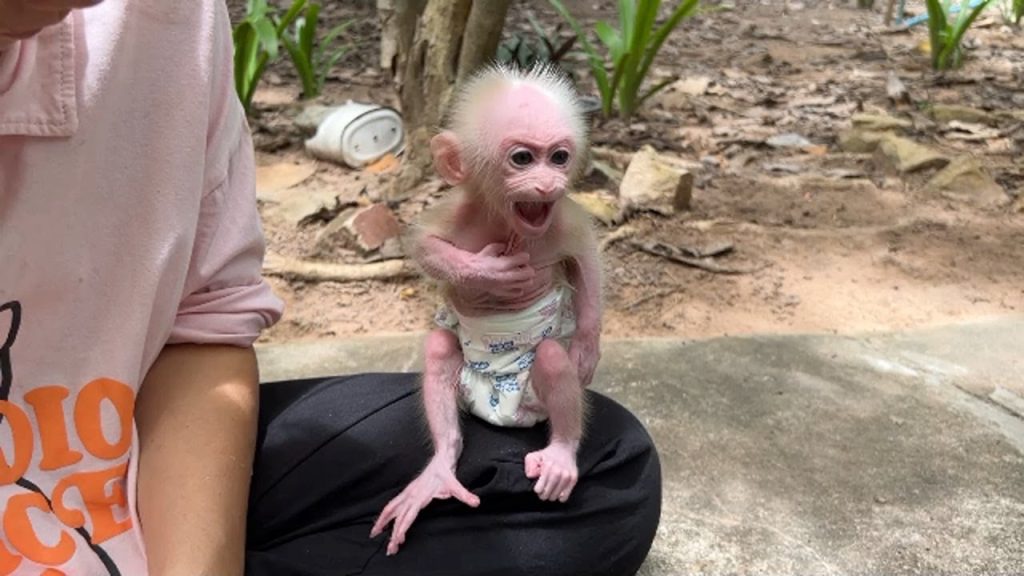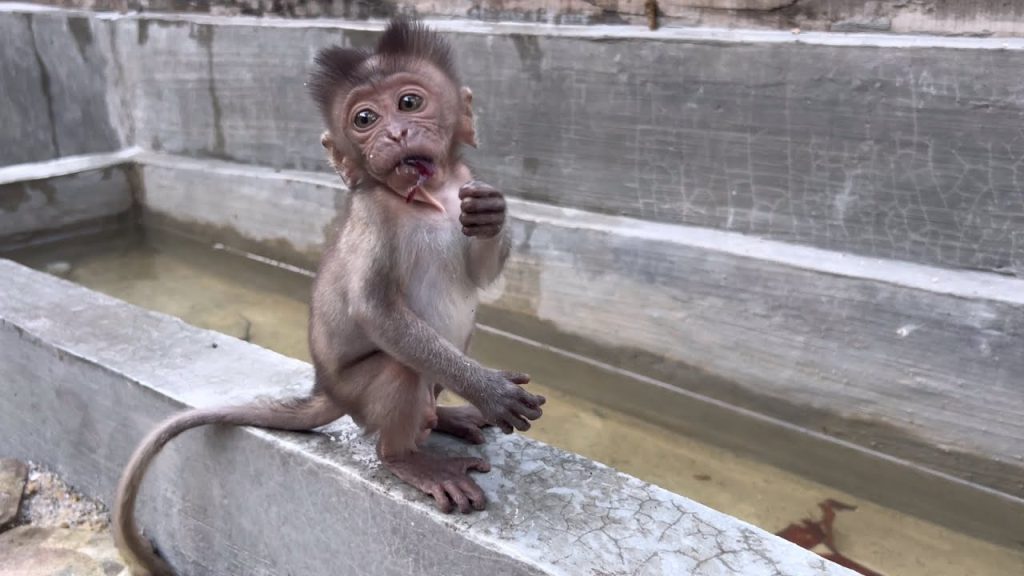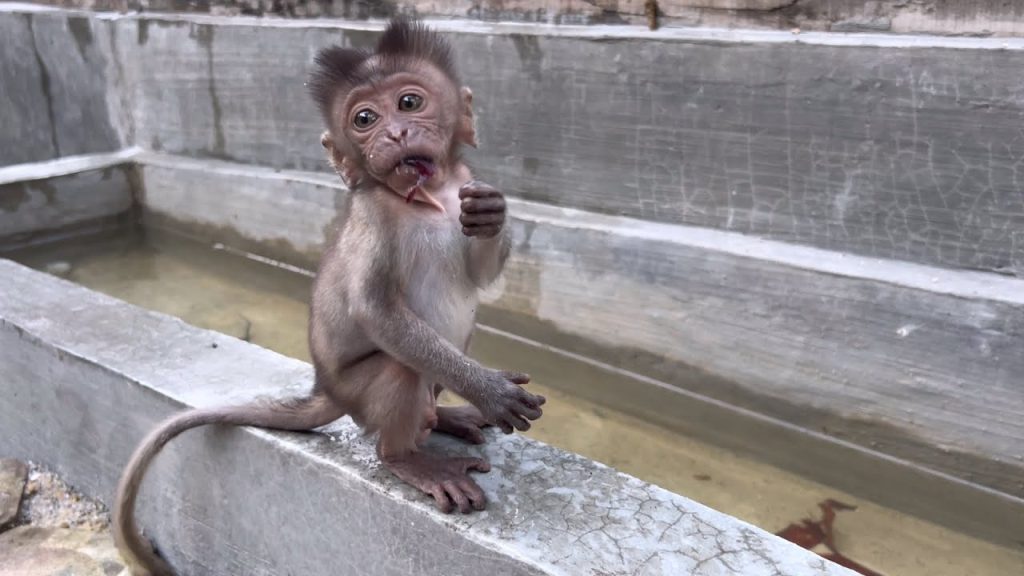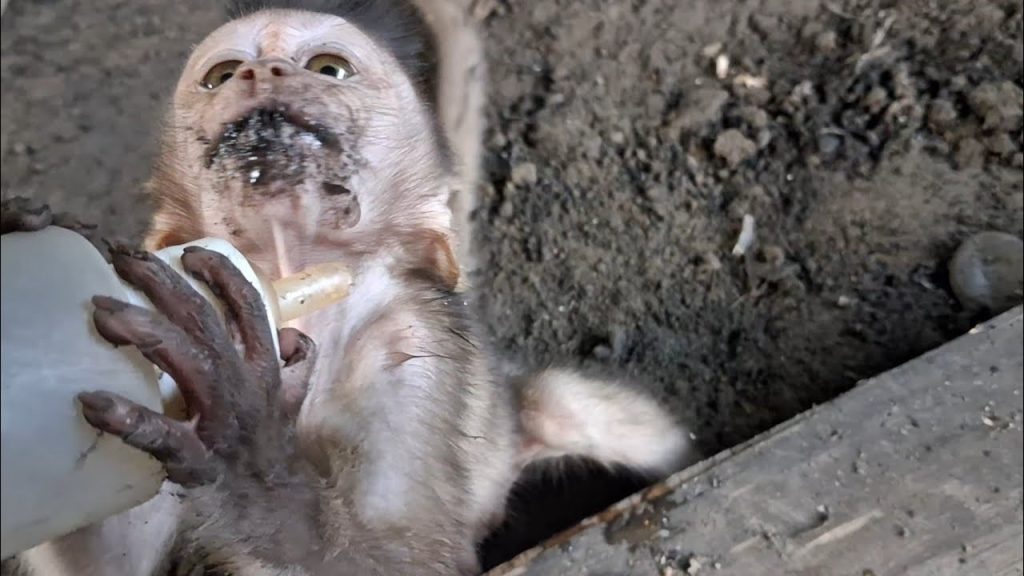
When ChiChi sits on her mother’s lap, angry, refusing to go down and refusing to join the others in play, we are seeing something much deeper than simple stubbornness. This moment reveals one of the most ancient behaviours embedded in primate development: the emotional dependency nest. A mother’s lap becomes a territory of identity and a shield against social risk. At this age, ChiChi is not simply “lazy” or “oppositional” — she is using her mother as a fortress. And anger is her wall. Her refusal to descend from that safety surface is not because she cannot play, but because she does not trust the atmosphere beyond her mother’s legs. The lap becomes a micro-world where she can be powerful without needing to prove anything to anyone.
When young monkeys cling like this, especially aggressively, there are often invisible triggers behind that cling. Maybe she felt threatened earlier by another baby’s push. Maybe she lost a small toy. Maybe she was jealous of someone else being held. Maybe she internalized frustration from a food moment. In the emotional system of a baby primate, unresolved tension gets stored in the muscles before the brain knows how to label the feeling. So she anchors herself to the one body she feels guaranteed stability from — the mother’s. And when anyone tries to move her off that lap, anger rises because the nervous system interprets that attempt as an attempt to remove safety.
Now consider the social layer. By refusing to play, ChiChi sends silent signal to the group: I do not feel safe enough to participate. The others see this. Some will ignore it. Some might become curious. Some might even try to approach her lap-space to test the boundary, which would only increase her tension. This is why the mother’s response becomes critical. Forcing ChiChi off the lap could deepen insecurity. Allowing her to stay forever could reinforce dependency. The correct balanced strategy is slow step-wise regulation: first gentle touch, then adjusting her posture lower, then presenting a toy at ground level so curiosity begins to outweigh fear. The goal is not to break attachment — the goal is to widen security outward so the ground becomes a safe territory again.
Because emotional growth in tiny primates is not achieved by command. It is achieved when safety becomes so stable that curiosity finally wins the battle against fear.


